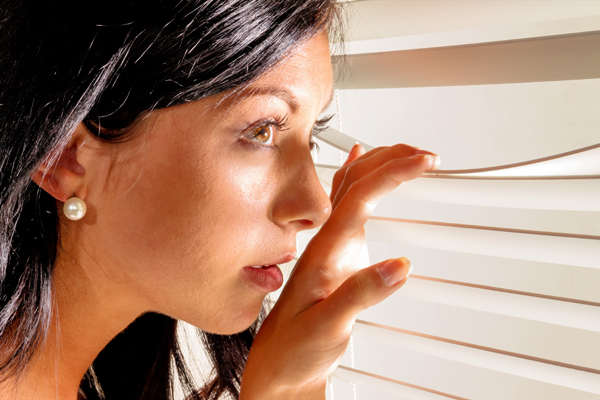How can your neighbours contribute to your home security? You might regard home security as an individual matter, but communities can work together to attempt to strengthen the security of individuals and the collective – This can help to create safer communities.

If you really want to help fight crime in your community, you should make sure that you’re integrated into it to start with. The first step is introducing yourself to new neighbours. This is, of course, the building block for further conversation and for the trust necessary to help each other out.
A time when you can offer help is if they’re going away on holiday. It’s worth offering to put one of your vehicles on their driveway, as it’s so easy to do but gives the impression that there is somebody in the property. You could also offer to move their mail from their front door mat whilst they are away; or if they aren’t happy to provide a key, you could direct them towards the Royal Mail’s Keepsafe service.
Whilst it’s great to help out all of your neighbours, any elderly neighbours that you might have should be your priority. This is partially because some elderly people are vulnerable. It’s also because there might not be anyone else looking out for them. According to comments in 2014 by the chairman of Contact the Elderly, elderly loneliness in Britain is in a ‘state of emergency’.
Elderly neighbours probably won’t ask you directly for help, so you need to be proactive. A danger that they should be particularly aware of is distraction burglary, a risk that it might be worth tactfully warning them of. You could also suggest that they place a sticker indicating that they don’t receive door-to-door tradesmen. Most importantly, you should offer you number so that they can ring you if they have any safety and security concerns.
You can’t be there all the time, of course, so it is worth recommending that they ensure that their doors and locks are doing a good enough job in keeping them secure. Rather than trying to install locks yourself, consider employing the skills of a reliable local locksmith.
It’s probably not good to be too nosy a neighbour, but it is helpful to be aware of what’s going on in your neighbourhood. Indeed, a study into nosy neighbours by Yale revealed that 45% of the 2,000 people surveyed knew their neighbours habits and daily routines. This means that those neighbours would be aware of when something was out of the ordinary, and this awareness provides the confidence to know when they should contact their neighbour or the police.
Of course, it’s important to not make your knowledge clear to potential criminals. You might think that you’re being kind by telling a doorstep trader to avoid a neighbour’s house because they’re away. What you might actually be doing is letting a criminal know that they should target your neighbour’s home.
Don’t let your home security slide if you live in a multi-occupancy dwelling or flat. The easiest way for this to happen is taking a stranger’s presence for granted. If one’s behind you as you enter your flat block, then don’t hold the door so they can tailgate in. If you live in a shared house, don’t let a stranger in to see your housemate until said resident appears. If you wouldn’t do something in a private home then don’t do it all.
You could also go a step further and join – or, if necessary, set up – a Neighbourhood Watch group. It means that you can more easily work with your community to strengthen its surveillance and to ensure everyone’s home security is up to a scratch. Indeed, the mere presence of a NW group, indicated by signs, posters and stickers in the area, might be a good deterrent to a burglar.
Improving the security of your neighbourhood takes simple steps – simple steps that could contribute towards living somewhere you and every resident feel safe. If everyone contributed towards making our villages, towns and cities safer, the end result would be incredible!